
by Lisa Nielsen
For new or prospective Austin College students and parents, it’s easy to walk around campus and learn where things are and what’s what. The Jordan Family Language House? You’ll find it not far from the soccer fields. The Temple Center for Teaching and Learning? Across the street from the Admission Office.
However, some things on campus are difficult to see. They remain elusive—difficult for even a well-trained campus tour guide to point out. Yet, those are the things that help ensure the Austin College experience is a good one—one that sets the foundation for a student’s future.
In many graduates’ and parents’ minds, the most important “something” is the mentoring that begins unfolding once a new student sets foot on campus. Ongoing, face-to-face interaction between students and professors seems to be a thing of the past at many colleges and universities. A host of teaching assistants, adjunct professors, and online courses have replaced professors, transforming higher education’s landscape.
However, Austin College has held its ground. Students come first. One-on-one time with professors—regularly—is part of the pact and process. It’s made possible, in part, due to the 12:1 faculty-to-student ratio. Consequently, mentoring provides an important advantage to being a ’Roo.
Getting Started
Austin College mentoring officially begins once a student enrolls at the College and signs up for a Communication/Inquiry (C/I) class, an introductory course required for all freshmen. The faculty member teaching a C/I class becomes the mentor for each student in that class. In most cases, the mentor/mentee relationship continues for four years.
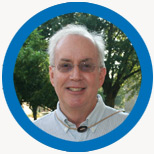 PROFESSOR ROD STEWART
PROFESSOR ROD STEWART
In fall 2014, the freshmen who filed into the C/I class of Dr. Rod Stewart ’70, professor of philosophy and George R. and Julia Blucher Jordan Chair in Humanities, began studying “Democracies, Old and New: In Search of Justice.” He welcomed his 18 students and introduced himself as their mentor.
Students also met the three returning students serving as Communication/Leaders (C/Ls) for their course. Throughout the semester, each C/L may be asked to lead a class discussion or provide feedback on student papers and quizzes. Regardless, the C/L will remain on the front line, aiding students with their freshman orientation.
Rod explained, “I become their mentor, and I hand out the map to the city.” (The “city” is Austin College.) “Then it’s the C/L who more or less becomes a taxi driver for the students,” he said. “That taxi driver can take them where they want to go—anywhere on the map.”
He points out that a C/L, who has already spent time on campus, knows the “back roads” or preferred ways to get from one place to another, metaphorically speaking. So in essence, Rod said, the mentoring or advising begins to spread.
“I may be the official mentor for those students,” Rod said. “But they soon may have five or more unofficial mentors, as upperclassmen or others begin offering them advice and helping them get around.”
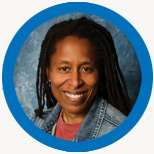 PROFESSOR LISA M. BROWN
PROFESSOR LISA M. BROWN
Dr. Lisa M. Brown, professor of psychology, finds mentoring college students “fascinating.” She enjoys opening her arms to students—official and unofficial mentees. In her eyes, there’s always a welcome mat outside her
office door.
“For college students, there’s so much going on in their lives,” she said. “The developmental transition from high school to college is significant, involving intellectual and emotional growth.”
Many students, she noted, have never been away from home before going to college. “They may have gone to camp or something, but not away for an extended time,” she said. “Then all of a sudden, they need to negotiate so much, along with integrating a new social life.”
When it comes to advising her mentees about courses or a major, Lisa added that students often arrive on campus with one set of ideas, then develop a new mindset. “When they get here,” she said, “they suddenly learn there are more choices. There are even courses they have never heard of before. There’s a lot to think about.”
As Lisa and her fellow mentors know, most students undergo a self-examination. More reason, she said, to keep her office door open. “Often times they need to talk with someone,” Lisa said. “And they may find it more comfortable to do it here than among their friends, as they sort things out.”
 ASSOCIATE PROFESSOR STEPHANIE GOULD
ASSOCIATE PROFESSOR STEPHANIE GOULD
The first years serving as a student’s mentor can be intense, said Dr. Stephanie Gould, associate professor of chemistry. Often her students are considering medical school, and they arrive at the College with many preconceived ideas. Regardless, she sits down with them to talk about their options. “I’m here to help them explore what may be out there,” Stephanie said. “It’s great for them to get out of the classroom and see things for themselves.”
She and her colleagues make every effort to identify internships or opportunities for students to shadow someone in a field. Such an experience, she said can be enlightening; it’s not uncommon for students to then pause and rethink their choices.
“I remember one of my first groups of mentees,” she said. “I looked at them and thought, ‘They’re so young; they’re just three months out of high school, and now learning to be freshmen.’ ”
Stephanie, like many mentors, likes to do more than simply advise about what courses to take next. True, she must aid students in developing an academic plan and confirming they can graduate in four years. But she also chooses to draw students out. Routinely, she speaks to them on campus, asks them to stop by some time, or inquires how things are going. She’s interested in keeping the conversation going.
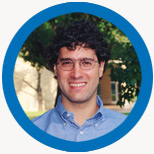 ASSOCIATE PROFESSOR ALEX GARGANIGO
ASSOCIATE PROFESSOR ALEX GARGANIGO
This year, mentees knocking on the door of Dr. Alex Garganigo, associate professor of English, are in their junior year. “By this time, a lot of issues have been hashed out since they had to determine their major and minor as sophomores,” he said. Still, he never assumes he can just sit back and simply sign off on their course selections. He chooses to question them about their choices, learn how things are going, and help them envision the future. “It’s good for them to look at the big picture and reassess things. It can make them feel more confident,” Alex said.
He first met his mentees when they took his science fiction literary class. The mentoring experience was nothing like what he had encountered previously, when he served as a visiting professor at Wake Forest University.
“Before coming here, I was an advisor with a couple of groups of students,” he said. “I saw them once or twice a year to talk about course registration. That was all. The way it’s done at Austin College allows us to have a closer relationship. And since you’ve had them in class, you know how to tailor your advice.”
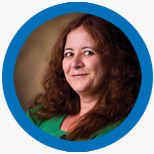 PROFESSOR JACKIE MOORE
PROFESSOR JACKIE MOORE
Dr. Jacqueline “Jackie” Moore, professor of history and a 2011-2012 Fulbright Scholar in Hong Kong, acknowledged: “I am a Hands-On Mentor.” She enjoys working closely with her mentees, as they examine what they want to pursue in terms of their studies, major, and life beyond college. “They may first come into my office with a list of things they want to do, and they may go out the door with a very different list,”
“Often times they hear from others what’s the best thing for them. It can be a struggle sometimes between family pressure versus personal desire,” Jackie said. “I try helping them navigate through that.”
For all her mentees, the end goal is finding what makes them happy. She admits early on being startled when students would suddenly do an about-face, and change directions. One of the first times was with a junior who she had walked alongside, carefully guiding her in becoming a creative writer. Then suddenly the young woman “turned completely around and decided to go into international relations—with a focus on human rights.”
Junior year, she believes, can bring a day of reckoning. However, Jackie said chuckling, so can senior year. One of her seniors had been determined to head down one path, then in what seemed only minutes after grasping his degree, he surprised her.
“I’ve decided to do something different now,” he told her. Jackie embraced his change of heart. “That was perfectly okay,” she said. “We work with our students to build a strong academic experience for them so they can go in any direction.”
Rounding the Bend
P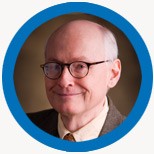 ROFESSOR MAX GROBER
ROFESSOR MAX GROBER
Although recently named dean of Humanities at Austin College, Dr. Max Grober, professor of history, is still maintaining watch over his mentees, as well as teaching one of his favorite courses—on Charles Darwin.
Looking back on his mentoring at Austin College, he notes that the College’s small size fosters a strong environment for mentoring. Given the on-going interaction among faculty, there are opportunities to brainstorm with other faculty the new directions a mentee may want to head, he pointed out. “You would be surprised how many times the subject of a student’s pursuits enters our conversations,” Max said. “It’s good for us to share ideas about what may work best for them.”
His experience as a mentor dates back to his years at Colgate University, where he recalls that the mentoring involved working with a student for only two years. Once students declared a major in their sophomore year, mentors and mentees parted.
“I like the arrangement better here at Austin College,” Max said. “Those additional two years with a student are important. They can also be very gratifying for the mentor. You can see the students becoming more confident and articulate.”
The junior and senior years also offer an opportunity for a different relationship to evolve. He believes with many students the conversation changes somewhat. “For the most part, they are on an adult level then. I enjoy hearing what they’re thinking,” he said. “I can learn from them.”
